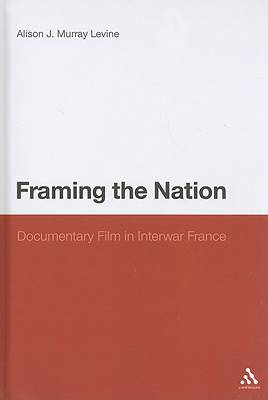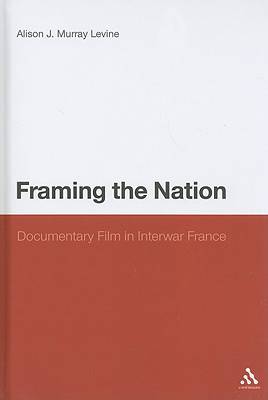
- Afhalen na 1 uur in een winkel met voorraad
- Gratis thuislevering in België vanaf € 30
- Ruim aanbod met 7 miljoen producten
- Afhalen na 1 uur in een winkel met voorraad
- Gratis thuislevering in België vanaf € 30
- Ruim aanbod met 7 miljoen producten
Zoeken
€ 339,45
+ 678 punten
Uitvoering
Omschrijving
Framing the Nation: Documentary Film in Interwar France argues that, between World Wars I and II, documentary film made a substantial contribution to the rewriting of the French national narrative to include rural France and the colonies. The book mines a significant body of virtually unknown films and manuscripts for their insight into revisions of French national identity in the aftermath of the Great War. From 1918 onwards, government institutions sought to advance social programs they believed were crucial to national regeneration. They turned to documentary film, a new form of mass communication, to do so. Many scholars of French film state that the French made no significant contribution to documentary film prior to the Vichy period. Using until now overlooked films, Framing the Nation refutes this misconception and shows that the French were early and active believers in the uses of documentary film for social change - and these films reached audiences far beyond the confines of commercial cinema circuits in urban areas.
Specificaties
Betrokkenen
- Auteur(s):
- Uitgeverij:
Inhoud
- Aantal bladzijden:
- 238
- Taal:
- Engels
Eigenschappen
- Productcode (EAN):
- 9780826431875
- Verschijningsdatum:
- 18/02/2010
- Uitvoering:
- Hardcover
- Formaat:
- Ongenaaid / garenloos gebonden
- Afmetingen:
- 152 mm x 231 mm
- Gewicht:
- 498 g

Alleen bij Standaard Boekhandel
+ 678 punten op je klantenkaart van Standaard Boekhandel
Beoordelingen
We publiceren alleen reviews die voldoen aan de voorwaarden voor reviews. Bekijk onze voorwaarden voor reviews.








